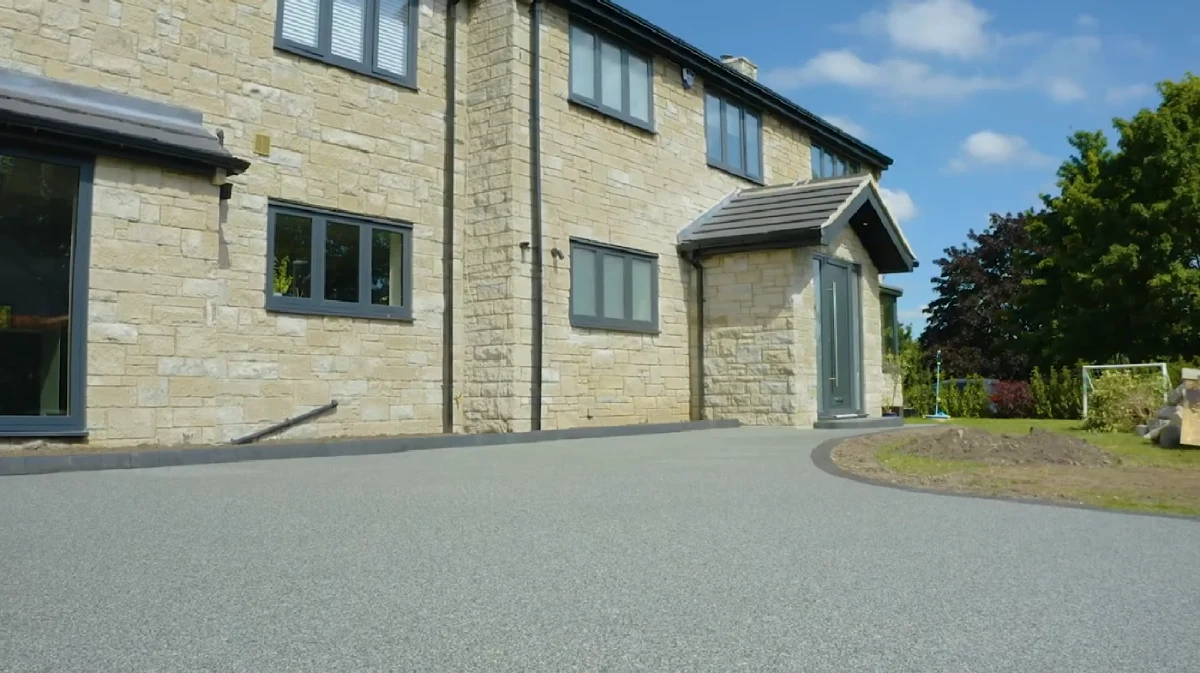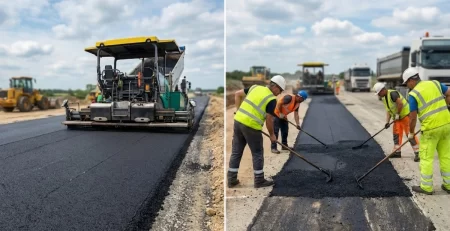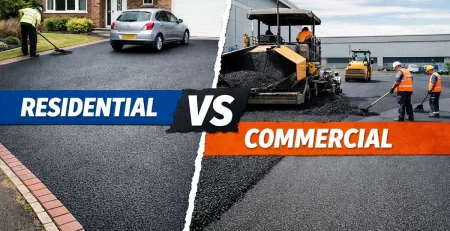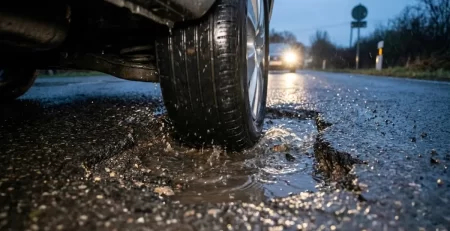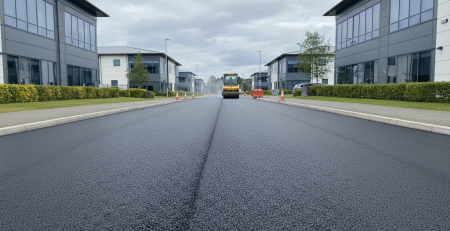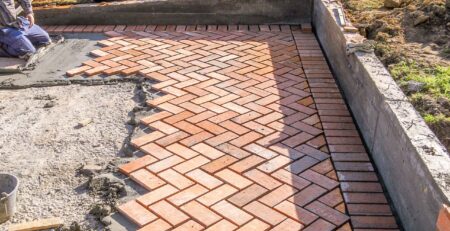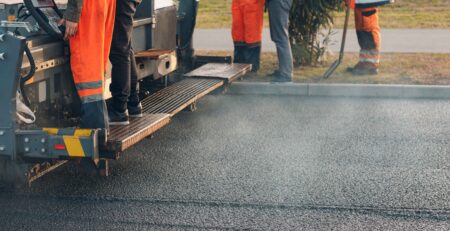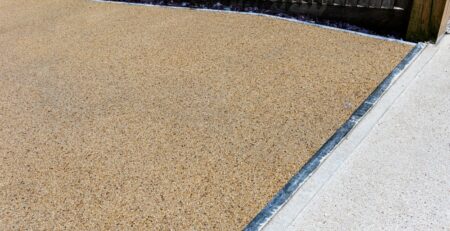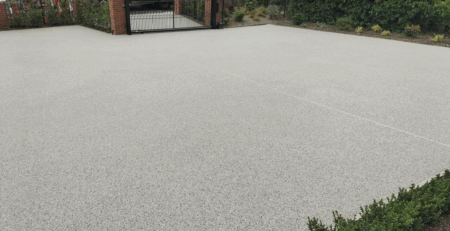Can Resin Driveways Be Laid on Concrete? Complete Guide
Installing resin driveways over existing concrete surfaces has become increasingly popular among homeowners seeking durable and aesthetically pleasing solutions. This comprehensive guide explores the feasibility, benefits, and considerations of laying resin surfaces directly onto concrete foundations.
Whether you’re renovating your property or seeking modern road construction technology alternatives, understanding the compatibility between resin systems and concrete substrates is crucial. This article will provide expert insights into preparation methods, installation techniques, and long-term performance expectations.
Understanding Resin Driveways and Concrete Compatibility
Resin-bound systems are ideal for concrete thanks to their strong adhesive properties, flexibility, and ability to form a durable bond. When concrete is properly prepared, the resin chemically bonds through surface pores, creating a stable, weather-resistant finish that lasts.
What Makes Resin Systems Suitable for Concrete?
Resin driveways consist of natural aggregates bound together with polyurethane or epoxy resins, creating a permeable and flexible surface. The compatibility with concrete stems from resin’s excellent adhesion properties and ability to accommodate thermal expansion.
Professinal road surface installing company experts recognize that concrete provides an ideal substrate when properly prepared. The rigid nature of concrete complements resin’s flexibility, creating a stable foundation that can withstand various weather conditions.
Chemical Bonding Process
The chemical bonding between resin and concrete occurs through mechanical keying and adhesive forces. Properly prepared concrete surfaces allow resin to penetrate microscopic pores, creating multiple anchor points that ensure long-lasting adhesion.
Modern resin formulations are specifically designed to work with alkaline concrete surfaces. The curing process typically takes 4-6 hours, during which the resin forms strong molecular bonds with the concrete substrate.
Surface Preparation Requirements
Proper surface preparation is critical for a successful resin installation. This includes assessing and cleaning the concrete for structural integrity, testing and managing moisture levels, and repairing any cracks.
Concrete Assessment and Cleaning
Before installation, thorough concrete assessment is essential. The surface must be structurally sound, free from cracks larger than 2mm, and properly cured for at least 28 days. Any existing coatings, sealers, or contaminants must be completely removed.
Professional cleaning involves power washing, degreasing, and mechanical abrading to create the optimal surface profile. The concrete should achieve a surface roughness equivalent to 80-120 grit sandpaper texture.
Moisture Testing and Control
Moisture content in concrete must not exceed 4% before resin application. Professional installers use electronic moisture meters and calcium chloride testing to ensure proper conditions. High moisture levels can cause adhesion failure and surface defects.
Proper drainage around the installation area prevents water accumulation that could compromise the resin-concrete bond. Installing adequate falls and drainage channels is crucial for long-term performance.
Crack Repair and Reinforcement
All existing cracks must be properly repaired using compatible concrete repair mortars or flexible sealants. Structural cracks may require additional reinforcement or complete section replacement before resin installation.
Movement joints should be maintained or created to accommodate thermal expansion. These joints prevent stress concentration that could lead to cracking in both the concrete and resin layers.
Installation Process and Techniques
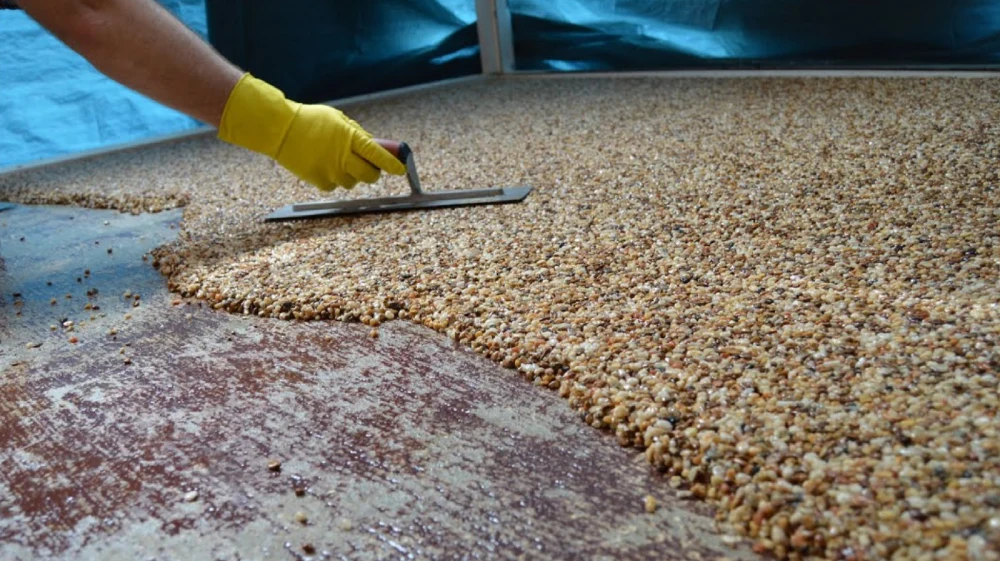
Achieving a flawless resin-bound surface starts with the right installation strategy. From selecting the appropriate primer based on concrete conditions to ensuring precise resin-to-aggregate mixing, every step demands accuracy and expertise.
Primer Application Methods
Primer selection depends on concrete porosity and environmental conditions. Penetrating primers seal the surface while maintaining breathability, essential for eco friendly road surfacing applications.
Application requires specific environmental conditions: temperatures between 5-35°C, relative humidity below 80%, and dry conditions for at least 4 hours post-application. Professional installers monitor these parameters continuously.
Resin Mixing and Application
Precise mixing ratios are critical for optimal performance. Most systems require 1:5 or 1:6 resin-to-aggregate ratios by weight. Mechanical mixing ensures uniform distribution and proper chemical activation.
Application involves spreading the mixed material evenly using specialized rakes and trowels. Working time is typically 20-30 minutes, requiring efficient teamwork and proper planning for larger areas.
Curing and Finishing Techniques
Initial curing occurs within 4-6 hours, but full mechanical strength develops over 24-48 hours. Traffic should be restricted during this period to prevent surface damage or marking.
Surface finishing may include light rolling or smoothing to achieve the desired texture. Professional installers adjust techniques based on aggregate size and intended use patterns.
Performance Benefits and Limitations
Resin driveways laid over concrete offer a strong blend of structural durability, thermal stability, and low maintenance needs. Their enhanced load-bearing capacity, resistance to weeds, and long service life make them a smart choice for high-traffic areas.
Structural Performance Advantages
Resin driveways on concrete offer superior load bearing capacity compared to traditional loose aggregate surfaces. The combination provides excellent structural integrity while maintaining surface flexibility.
Thermal performance is enhanced through the concrete’s thermal mass and resin’s UV stability. This combination reduces temperature fluctuations and prevents premature aging of the surface material.
Maintenance Requirements
Low maintenance characteristics make resin-on-concrete installations attractive for busy homeowners. Regular cleaning with mild detergents and occasional resealing every 3-5 years maintains optimal appearance and performance.
Weed prevention is a significant advantage, as the bonded surface prevents weed growth through joints. This reduces ongoing maintenance compared to traditional paving systems.
Longevity Considerations
Properly installed systems can achieve service lives of 15-20 years with minimal maintenance. The concrete substrate provides long-term stability, while the resin surface offers aesthetic durability.
Color retention varies with UV exposure and traffic levels. High-quality resins with UV inhibitors maintain color stability significantly longer than standard formulations.
Environmental Impact and Sustainability
Resin-bound surfaces offer a sustainable solution for modern construction, utilizing recycled materials, bio-based resins, and low-VOC systems to reduce environmental harm.
Eco-Friendly Material Properties
Modern resin systems increasingly incorporate recycled aggregates and bio-based resins, supporting sustainable construction practices. The permeable nature reduces stormwater runoff and supports natural drainage patterns.
VOC emissions are minimal with properly formulated systems, contributing to better air quality during and after installation. Water-based primers further reduce environmental impact.
Waste Reduction Benefits
Installing resin over existing concrete eliminates demolition waste and reduces raw material consumption. This approach aligns with circular economy principles and sustainable development goals.
Lifecycle assessment studies indicate significantly lower environmental impact compared to complete surface replacement, making resin-on-concrete installations an environmentally responsible choice.
Frequently Asked Questions
How long does resin installation on concrete take?
Installation time varies with area size and surface preparation requirements. Typical residential driveways require 1-2 days for preparation and installation, with an additional 24-48 hours for complete curing before normal use.
Can resin be applied to old or damaged concrete?
Minor defects can be addressed through proper preparation and repair. However, severely damaged concrete with structural issues should be replaced before resin application to ensure optimal performance and longevity.
What maintenance is required for resin driveways on concrete?
Regular maintenance involves periodic cleaning with mild detergents and annual inspection for minor repairs. Professional resealing every 3-5 years maintains optimal appearance and protective properties.
Is planning permission required for resin driveways?
Planning permission is typically not required for coloured resin driveways, as they’re considered permitted development. However, front gardens may have drainage requirements that need consideration during design and installation phases.
Making the Right Choice: Your Resin Driveway Investment
Installing resin driveways on concrete surfaces represents an excellent balance of performance, aesthetics, and value. The combination provides superior durability while maintaining the flexibility needed for various applications.
Professional assessment and installation ensure optimal results and long-term satisfaction. Consider consulting with experienced contractors who understand both modern road construction technology and local environmental requirements.The investment in resin-on-concrete systems delivers lasting value through reduced maintenance, improved aesthetics, and enhanced property appeal. With proper installation and care, these surfaces provide decades of reliable service while supporting sustainable construction practices.

